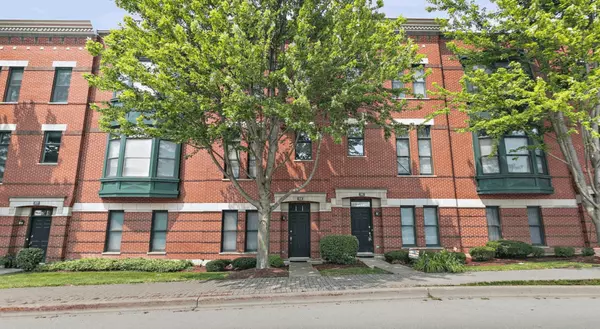Foreclosure & Short Sales Tips by Sarah Leonard

Understanding the Situation: Short Sales vs. Foreclosure
Before diving deeper, it's essential to understand the distinction between a short sale and a foreclosure. As Sarah Leonard explains, a short sale occurs when a homeowner sells their property for less than the remaining balance on their mortgage. A foreclosure, on the other hand, is when the bank takes possession of a property due to the homeowner’s inability to make mortgage payments.
Many homeowners today find themselves in financial distress, despite having significant equity in their homes due to the rapid appreciation of property values since the COVID-19 pandemic. For those in such a situation, Sarah Leonard stresses the importance of taking action sooner rather than later.
Don’t Let Your Home Equity Slip Away
"Would you agree or disagree," says Sarah Leonard, "that to let late mortgage payments, late fees, and credit-crushing debt pile up without taking any action is a debilitating decision?" Leonard points out that doing nothing can severely damage your credit score and diminish your home equity, which could otherwise be a financial lifeline.
For instance, if you bought your home for $250,000 in 2008 and it's worth $400,000 today, but you find yourself unable to make payments due to a job loss, sickness, or divorce, the financial burden can quickly escalate. Sarah Leonard explains that late fees, unpaid taxes, insurance delinquencies, and other expenses can accumulate rapidly, eroding your hard-earned equity.
"The key," she advises, "is not to let things get so far out of hand that you lose most of your equity by waiting too long to address the problem."
The Real-Life Scenarios
Sarah Leonard shares stories from listeners and clients who face similar dilemmas. One listener, who went into forbearance during COVID-19, has not made a mortgage payment in six months. Rather than allowing the situation to spiral into foreclosure, she worked proactively with her servicer to enter forbearance again. This move prevented her credit score from taking a hit and gave her a chance to catch up financially.
But, as Sarah Leonard highlights, this situation is still precarious. If the listener cannot get an extension or fails to make the necessary payments, she must decide whether to let the mortgage fall further into delinquency or sell the property and retain the equity that remains.
The Critical First Step: Communication
Sarah Leonard emphasizes the importance of communication: "The first thing you need to do is call your servicer – the company you write your mortgage payments to – and tell them you're having hardships. Have documentation ready to show your hardship." Whether it’s due to job loss, sickness, or another life event, documenting the situation is crucial for negotiating with lenders and making informed decisions.
Why a Short Sale Might Be the Best Option
For some, selling the home and starting over might be the best way out. Sarah Leonard explains, "Sometimes, the weight of carrying around a heavy financial burden is too much, and selling can be the answer. If you have equity in the property, don't let the bank take those fees and strip that away from you."
She also points out that if you bought a home in 2021, when prices were high and mortgage rates were low, but are now facing job loss or another hardship, a short sale could be a viable option. "If the home is worth less than what you owe, and you don't have the money to cover the shortfall, a short sale might allow you to walk away from the property without further debt," Leonard advises.
What Defines a Hardship?
According to Sarah Leonard, qualifying for a short sale requires proving a genuine financial hardship. Common hardships include:
- Divorce
- Death of a spouse or partner
- Job loss or significant income reduction
- Major medical expenses
If you're uncertain whether your situation qualifies as a hardship, Sarah Leonard encourages reaching out for guidance: "Call, and I'll be happy to talk you through what might qualify."
Rebuilding After a Short Sale
While a short sale can be an emotional and financial setback, Sarah Leonard reminds listeners that it’s not a permanent mark on your financial record. "If you do a short sale, it’s typically three years before you can buy another home," she notes. "It's like having a temporary setback but being able to start fresh after some time."
She continues with an analogy: "It's like having terrible acne in high school. You graduate, see a dermatologist, and after three years, your skin is clear again. Time heals all wounds."
Moving Forward: Proactive Steps to Take Now
To avoid foreclosure and maximize your options, Sarah Leonard advises:
- Call your mortgage servicer: Discuss your situation, and explore your options.
- Consider a short sale: If keeping the property isn’t feasible, selling it before foreclosure might be the better option.
- Stay informed: Learn about the alternatives and what makes the most sense for your unique situation.
If you’re feeling overwhelmed or unsure of what to do next, Sarah Leonard reassures, "There's no reason to be uncomfortable or embarrassed talking about it. It happens to good people all the time. If you're in a situation where you just don't know what to do, call us. We're happy to help."
If you need further assistance or want to discuss your options, Sarah Leonard is here to help. Call her at 224-239-3966 or visit her website at sarahleonardsells.com.
Categories
Recent Posts










GET MORE INFORMATION

Broker | Owner
